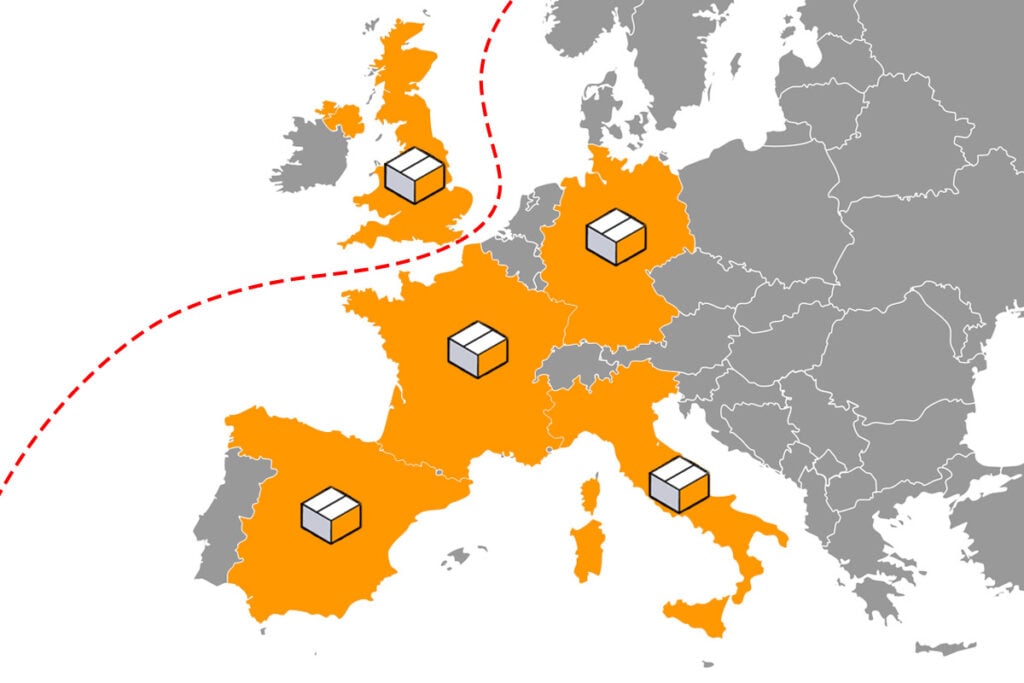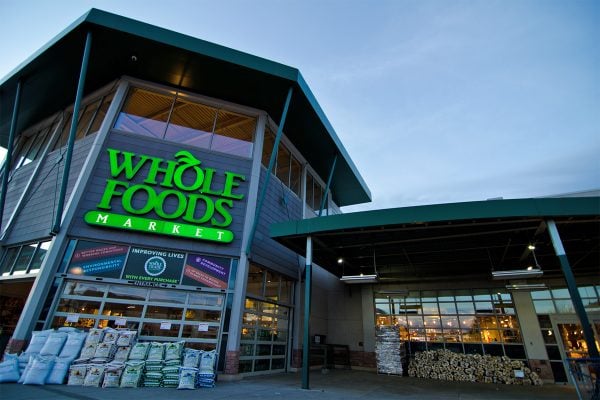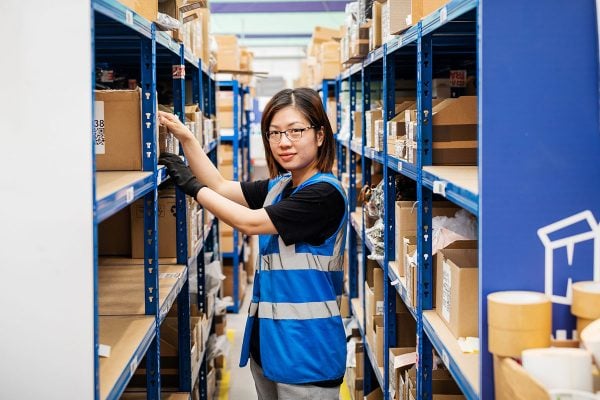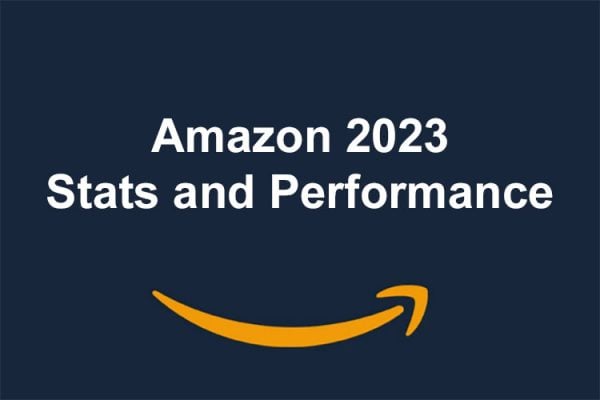 Amazon border policy changes come into effect on the 1st of January 2021 and the impact will start to be felt in just a couple of weeks’ time in mid November. In this guest post today, Martin Bysh, CEO of Huboo, takes a prosaic view of what the Amazon border policy changes will mean for merchants and how they can mitigate the effect it will have on their businesses:
Amazon border policy changes come into effect on the 1st of January 2021 and the impact will start to be felt in just a couple of weeks’ time in mid November. In this guest post today, Martin Bysh, CEO of Huboo, takes a prosaic view of what the Amazon border policy changes will mean for merchants and how they can mitigate the effect it will have on their businesses:
This has been a tough 12 months for third-party Amazon marketplace sellers. At the start of year and the onset of Covid-19, the retail giant made the difficult decision to prioritise fulfilling its own stock over that of its third-party ecommerce sellers, while also restricting thousands of these businesses to selling essential items only via its platform.
Now, as we approach the end of 2020 – and with Brexit looming on the horizon – Amazon has announced significant changes to the way it will need to operate across the pending UK-EU customs border, creating a quandary for the many ecommerce businesses reliant on Fulfilment By Amazon (FBA) for their European-wide order fulfilment needs.
What exactly is changing?
The Amazon border policy changes mean that all pan-European FBA inventory transfers will stop between the UK and EU from 1st January 2021, as will any cross-border FBA orders fulfilled by Amazon’s European Fulfilment Network.
Or to put it another way, because Amazon doesn’t hold any information on the nature and value of the goods moving between the UK and mainland Europe via its network, it has decided that it won’t be able to shift products over the newly instated customs border on behalf of its merchants.
For retailers, this means they will be forced to maintain separate FBA inventory on either side of the border if they want to go on shipping to mainland Europe, not to mention complying with a raft of additional red tape – from gathering country-specific VAT numbers and harmonised system codes to providing customs clearance documents.
No silver bullet
Amazon’s decision will not have been taken lightly. It means an end to the heavily discounted European fulfilment model – enabled by Amazon’s sheer scale and reach – that the company has used to great advantage in recent years.
 What’s more, it demonstrates that even the world’s biggest and most powerful businesses cannot always identify silver bullet solutions to complex trading issues. Many sellers simply expected Amazon to ‘find a way’. Instead, from 1st January, the fulfilment industry will be operating on more of level playing field, and ecommerce businesses will need to think carefully about whether an Amazon-reliant fulfilment model still makes sense for them.
What’s more, it demonstrates that even the world’s biggest and most powerful businesses cannot always identify silver bullet solutions to complex trading issues. Many sellers simply expected Amazon to ‘find a way’. Instead, from 1st January, the fulfilment industry will be operating on more of level playing field, and ecommerce businesses will need to think carefully about whether an Amazon-reliant fulfilment model still makes sense for them.
Small retailers may struggle
While Amazon’s announcement appears to have taken retailers of all sizes by surprise, it is smaller, independent retailers that could come off worst from the pending changes. Unlike their larger rivals, these businesses may have had little experience handling the additional systems, processes, checks and tariffs required when shipping to other parts of the world, or managing multiple in-country VAT requirements.
Similarly, smaller retailers may not have sufficient inventory – or inventory forecasting capabilities – to make the right decisions about how to split their stock and where to house it. They’ll also have to spend more to store this inventory in multiple locations.
Making the right European fulfilment choices
Whatever your feelings about Brexit, it’s clear that we need to do everything we can to encourage online retailers to keep selling into Europe – particularly at a time when high street retail has been left reeling by the impact of lockdown.
And, having enjoyed seamless cross-border fulfilment at no extra cost over the past few years, these third-party Amazon sellers now face a difficult decision about how to manage their European footprint going forwards.
 That’s why in the 2021 we at Huboo will be opening a new fulfilment centre in Germany to support these retailers, as well as doing everything we can to help ease the red tape burden on retailers looking to tap into the European ecommerce market for the first time.
That’s why in the 2021 we at Huboo will be opening a new fulfilment centre in Germany to support these retailers, as well as doing everything we can to help ease the red tape burden on retailers looking to tap into the European ecommerce market for the first time.
Furthermore, many retailers have had to forge multiple fulfilment provider relationships due to the prohibitive costs charged by Amazon for fulfilment via non-Amazon sales channels. By opening in Germany, we’ll be able to provide a one-stop-shop for these sellers, irrespective of where they’re selling to, or which sales channels they’re selling through.
In the UK we’ve become known as the human-centric fulfilment provider, building our business based upon the principle of always treating employees well, training them properly and giving them meaningful careers. Companies that value their teams are much better equipped to deliver the sort of service levels and support retailers needs as they attempt to navigate these challenging UK-EU trading conditions. Going forwards, this is the reputation we’ll aspire to across the whole of mainland Europe.











3 Responses
I think a lot of sellers will be interested in bundling Amazon Returns and getting them back, for example, the handling fees and cost. Even a once a month or fortnight automatic system. Especially as many Amazon returns marked as faulty do not have faults. Will Huboo be offer a solution around this ?
I’m particularly familiar with Amazon (only as a buyer), and live on the other side of the channel. When I was looking for certain products on google search, I ended up on English language pages from British sellers on Amazon Germany. At first I was unaware because it had not been automatically translated by my browser, but when I looked at the URL I could see it was amazon.de followed with a /-/en/
Has that long been the case, or is this in preparation for the fulfilment centre in Germany you mentioned?